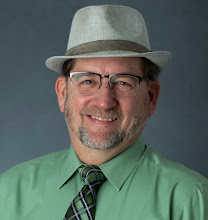My older brother and I used to wrestle -- not competitively, or an any organized sporting sense, but more as a predictable display of his physical superiority, in the face of my frustrated attempts to break the bonds of brotherly oppression and throw off the chains of firstborn intimidation. It never worked. But the struggle itself had merit, and in the process I learned a lot about myself, about my weaknesses and vulnerabilities, and about the growing resolve within me to find strength despite weakness, courage despite fear, and pride despite humiliation. I guess I could thank my brother for those lessons in character, but I haven't. I don't think I will.
One fuzzy memory - perhaps altered a bit by four decades of reflection and interpretation - begins with my brother pinning me down on the kitchen floor, demanding that I keep my mouth shut. In childishly literal defiance, I held my mouth wide open, proving beyond doubt that although he had denied me the use of my arms or legs, he had not yet restrained my jaw. Creatively, he found a way to keep me pinned with his legs and just one hand, then with the other hand, grabbed a nearby quarter. Holding the quarter above my gaping mouth, he threatened to drop it down my throat, if I did not shut my trap. Strengthening my defiance, I decided to call his bluff. But he wasn't bluffing. The quarter found its target with surprising speed and accuracy, and before I knew what had happened, an instinctive swallow propelled the coin into my belly. My brother was left searching for a way to explain to my mother how he had not intended to do that which he clearly did "on purpose" -- with malice of forethought and impressive precision. His retort of last resort was the thing that sticks most clearly in my mind, when he pompously proclaimed, "At least now you're worth something."
It is generally not a good idea to accept an older sibling's assessment of one's worth, particularly not when uttered in the midst of childhood struggles. But the words that he threw out as insult reached my ears as evidence of potential affirmation: my big brother had a last acknowledged the possibility that I had value. I wasn't preparing to go swallow the contents of my piggy bank, but I do remember thinking that he would someday find other reasons to affirm my worth. (As the decades have passed, my brother has become a very close and affirming friend. To this day, the worth that he sees in me is a source of great encouragement to me. For that, I do often thank him.)
As people allow me the privilege of getting to know them more deeply, I am often surprised how common it is -- how "normal" it is -- that we struggle with fundamental (dare I say, "childish") questions of our own worth. For all the talk and teaching in recent decades on the essential development of self-esteem, there seems to be something missing in the equation. The notion that my essential worth should be based upon my opinion of myself seems hopelessly circular, and ultimately narcissistic. I have a deep internal desire and passion to be useful to others, not useful to myself (whatever that may mean). I strive to find ways in which I can be of benefit to the community around me, not preoccupied in the pursuit of my own well-being. I hope to discover personal gifts that I can give to others in need, not simply to celebrate my own giftedness. In short, I do not believe that "worth" or "esteem" can in any meaningful way be granted to oneself. It must come in from the outside; it requires an external evaluation, an objective assessment. More importantly, a meaningful assessment of worth cannot come from competing siblings or coworkers, not from self-interested employers or impatient customers, nor from obsequious servants or adoring fans. Rather, it must come from one whose opinion is completely trustworthy and unimpeachable, one who will neither be patronizingly uncritical nor vindictively unforgiving. We need a judge who is both just and merciful, without allowing those two virtues to blur each other's edges. We need to be judged. We need to be assessed. We need to see our own worth, not through our own blurry eyes, but through the all-seeing and all-knowing eyes of truth.
If such a judge can be found, then surely that judge's opinion must override our own. That judge's assessment of our worth must supplant our insecurities and dispel our self-consciousness. If that judge tells us that we are loved, that we are worth dying for, such a verdict must be considered definitive and true.
If such a judge cannot be found, then we are lost, without hope.
-- Brother Tom
Saturday, October 24, 2009
Subscribe to:
Posts (Atom)

